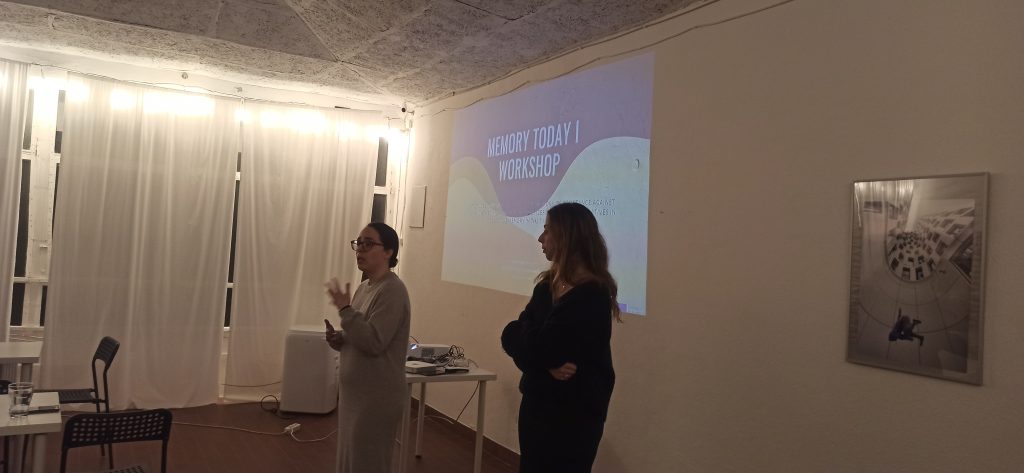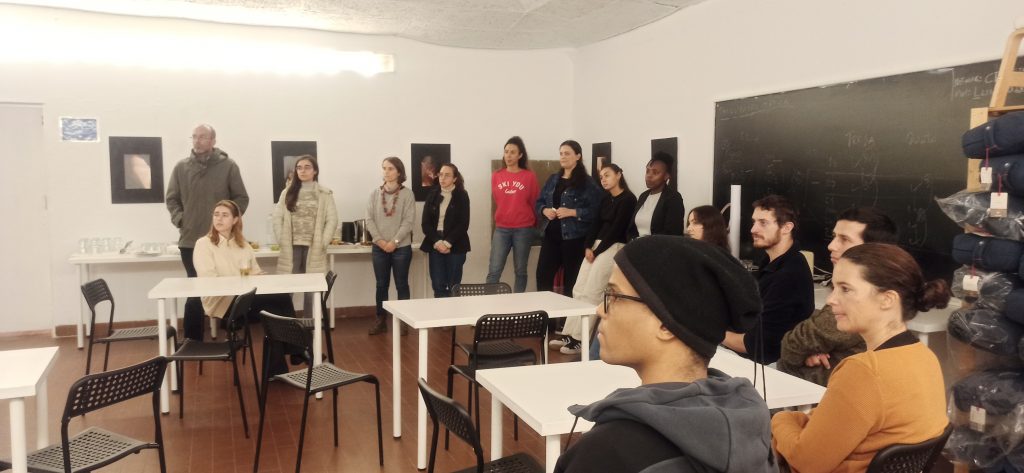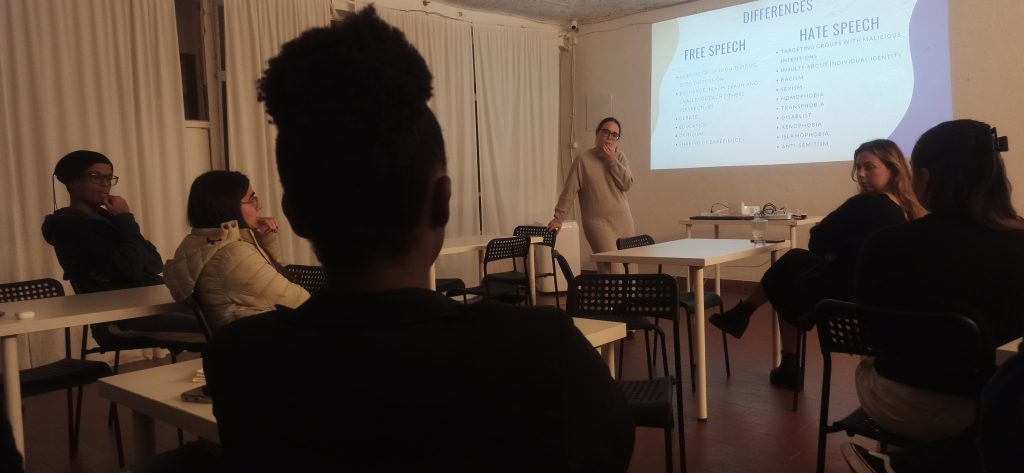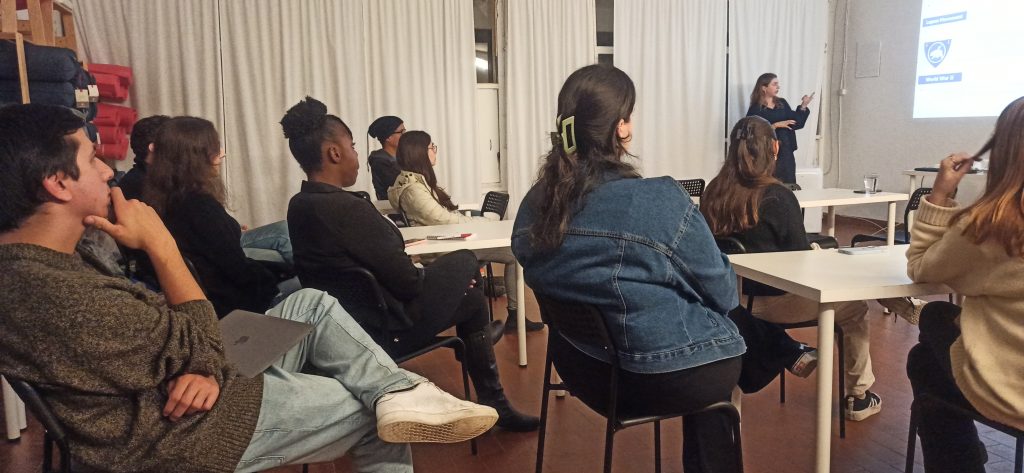Overview
The Memory Today I and II Workshops primary objective was the dissemination of the results from the first two reports of the project SolRem: (1) Attitudes towards the collective memory of resistance against far-right regimes, groups or practices and specific narratives; (2) Collective memory practices concerning the right-wing.
In these workshops, there was a presentation of collective memories concerning far-right political movements in the partner countries of the project: Portugal, Romania, Finland, Italy and Spain. The audience was receptive to the topics approached, and the workshop fulfilled its purpose of sharing the findings of the reports conducted earlier on this year about the history of far-right movements in each one of these countries.


There were around 20 people in the audience engaging in the discussion and debate of the topic of countering far-right movements. The transnational approach of this workshop contributed to a more broad understanding of what are some differences and similarities between the countries discussed.
Agenda
| 8th November 2023 – 17:30-18:30 |
| Opening of the Memory Today I and II Workshops with a session of networkingAna Catarina Caldeira, President of IM Cultural |
| 8th November 2023 – 18:30-19:00 |
| Memory Today I Workshop: Attitudes towards the collective memory of resistance against far-right regimes, groups or practices and specific narratives in collective memory in the target countriesMargarida Malta, Project Manager of Young Educators |
| 8th November 2023 – 19:00-19:30 |
| Activity on Freedom of Speech and Hate SpeechAna Catarina Caldeira, President of IM Cultural |
| 8th November 2023 – 19:30-20:00 |
| Memory Today II Workshop: Collective memory practices concerning the right-wing Margarida Malta, Project Manager of Young Educators |
Attitudes towards the collective memory of resistance against far-right regimes, groups or practices and specific narratives in the target countries
Under the general topic of the collective memory of resistance against far-right movements, the presentation begins by taking a look at the impact of the far-right in the history of the 20th century. By characterising the far-right dictatorial regimes that marked the contemporary history of Portugal, Italy and Spain, a lot of similarities were unequivocal. Salazar, Mussolini and Franco were the main figures of authoritarian, nationalist, catholic, conservative, repressive, anti-communist and single-party regimes in the countries mentioned, respectively.
The report showed that there is a clear distinction between these countries and that in the cases Romania and Finland, that they did not have a far-right dictatorship ruling their countries. Instead, the case of Romania is marked by the authoritarian regime of the influence of the Soviet Union that ended in the 1990s. As for Finland, the case is curious, as the proximity with Russia led for the Finnish far-right to resist the Soviet influence and even be an ally to Germany in World War II.

Today, the post-fascist far-right is aligned in ideological and political principles in each one of the countries addressed, although each national context carries certain specificities. The far-right movements are characterised by racist, xenophobic and misogynist discourses, carrying a conservative and anti-immigration ideology that stigmatises minorities.
Collective memory practices concerning the right-wing
Approaching the collective memory practices about the right-wing and far-right movements of the countries mentioned above, it is relevant to address the evolution of these movements through significant moments in history, such as World War II, the democratic revolutions from far-right dictatorships and the dissolution of the Soviet Union.
As for the collective memory of the far-right, in Portugal there are no significant acts of glorification of the nation’s dictatorial past on behalf of the population, and it is mostly noticed in the media. In Finland, the far-right presents a glorifying view of Finnish history, especially the opposition to the Soviet regime. Also, there is a reappropriation of the symbology of past fascist movements of the 20th century today. In Italy, there is a selective forgetting of the past dictatorial regime and colonial empire, through the creation of narratives that minimise and ignore the relevance of the historical past. The most remarkable differentiating elements concern the collective memory of Spain, as it is marked by public expressions of adoration and exaltation of figures associated with the Franco regime, in celebratory dates.

Conclusions
The Memory Today I and II Workshops provided an open and safe environment for the exchange of knowledge and experiences related to the topic of the far-right. By engaging the participants in a discussion, it allowed for us to share different perspectives and personal concerns on the issue, concerning the dynamics of the past but also of the present.
The audience was interested in learning about the collective memories of the far-right within countries who have different historical pasts but who share the presence of such ideology in their nation’s political climate.
